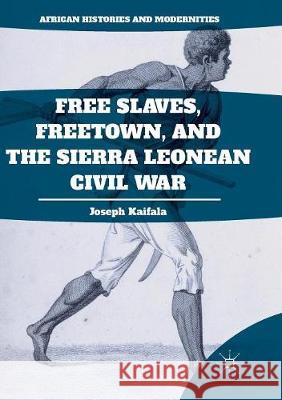Free Slaves, Freetown, and the Sierra Leonean Civil War » książka
topmenu
Free Slaves, Freetown, and the Sierra Leonean Civil War
ISBN-13: 9781349956579 / Angielski / Miękka / 2018 / 345 str.
Free Slaves, Freetown, and the Sierra Leonean Civil War
ISBN-13: 9781349956579 / Angielski / Miękka / 2018 / 345 str.
cena 544,74 zł
(netto: 518,80 VAT: 5%)
Najniższa cena z 30 dni: 539,74 zł
(netto: 518,80 VAT: 5%)
Najniższa cena z 30 dni: 539,74 zł
Termin realizacji zamówienia:
ok. 20 dni roboczych.
ok. 20 dni roboczych.
Darmowa dostawa!
Kategorie BISAC:
Wydawca:
Palgrave MacMillan
Seria wydawnicza:
Język:
Angielski
ISBN-13:
9781349956579
Rok wydania:
2018
Wydanie:
Softcover Repri
Ilość stron:
345
Waga:
0.43 kg
Wymiary:
21.01 x 14.81 x 1.91
Oprawa:
Miękka
Wolumenów:
01
Dodatkowe informacje:
Wydanie ilustrowane











